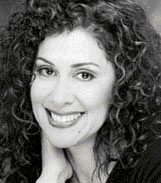By T. Murray

Kathleen McGhee Anderson
Spelman College
BA English, Math Minor
Executive Producer, “Soul Food” the Series
Growing up in Detroit Kathleen McGhee Anderson never thought about going to Spelman College. Her mother took a group of students to visit the Atlanta University Center in the 1960s. Having attended Temple, Kathleen’s mother was drawn to the community of women that she encountered while touring Spelman’s campus. She shared her findings with her daughter and suggested she fill out an application. Soon after, Kathleen made her move to Atlanta, Georgia. Although her grandparents were from Alabama, she had never lived in the south. At the time, most of the students in the AUC were from Georgia and surrounding states. However, Spelman exposed Kathleen to girls of diverse backgrounds who shared interests and passions similar to her own.
It was a revolutionary time within the country and on the AUC campuses. Kathleen came from a family of activists and at the time there were many students who were adamant about certain changes taking place.
“I became involved in a tidal wave. Things were very political on campus. There was a need for Spelman to focus on African American studies. They wanted to create well rounded ladies and to do this many of us believed that they should be teaching pride in color, pride in heritage and African American beauty,” Kathleen states.
The movement was not just taking flight on Spelman’s campus. The men of Morehouse were also inspired by the Black Pride Movement. When the trustees would arrive on campus in the spring for meetings, the students would attend to make their presence and demands known. Spelman alone had a dress code mandating that pants only be worn on Thursday and Saturday, as well as a curfew. Kathleen recalled a scenario with the trustees that she compares to the protests for social change that took place at other predominantly white schools, like Columbia, in the late 60s.
Of that period Kathleen says, “It was not an easy time, but as Frederick Douglass said, ‘There is no progress without struggle.'”
After the student takeover, Kathleen spent a year living off campus, returning her junior year. Many looked upon those who had participated in the events as trailblazers. It is most likely due to Kathleen and her classmates that Spelman later adopted the African Diaspora & the World (ADW) courses required for all incoming freshman. Kathleen insists that it is the moxie that became planted in her spirit during that time that has helped her to successfully navigate through Hollywood.
On the academic side, Spelman is where Kathleen McGhee Anderson learned she had a talent for writing. Her courses introduced her to a number of dynamic authors, such as Zora Neale Hurston, to whom she had not previously been exposed. It was one of her professors who, upon reading her work, told her that she could make a career as a writer. Not unlike it is today, Spelman proved to be a primary source for companies looking for top talent. Kathleen got the courage to interview with the Detroit Free Press and spent time there after graduation. She was quickly recognized for her amazing talent as a writer and could have been on her way to becoming a well respected journalist. Kathleen, having other aspirations, packed up the resolve she acquired at Spelman and went on to Columbia where she obtained her Masters in Film Directing.
Most television viewers in America have been exposed to some aspect of Kathleen’s work. She has contributed her writing skills to many popular television shows such as “Benson,” “Webster,” “227,” “The Cosby Show,” “Touched by an Angel,” and Lifetime’s “Any Day Now,” as well as the movie Sunset Park. Her most recent behind the scenes work includes serving as Executive Producer of Showtime’s hit television series “Soul Food” during its final season. Kathleen’s favorite work has been performed, not on the big or little screen, but on the stage. Oak and Ivy is a love story that explores the relationship between poets Paul Laurence Dunbar and Alice Ruth Moore.
“This is the work of which I’m most proud. The stories on television are very traditional. Oak and Ivy is special. It shows life’s connections to poetry, literature and speaks to our hearts. Television is very collaborative. I want to write more plays because they are from my heart,” Kathleen says.
Along with the plays Kathleen is working on creating new dramas, movies and even a first novel. Despite all she has accomplished in her career and her success at balancing her demanding schedule while raising a son, Kathleen keeps pressing forward. Along with the plays Kathleen is working on creating new dramas, movies and her first novel. In the spirit of many Spelman women she is focused on making a difference wherever she walks and in the lives of those she touches.
“I feel no limit to my self expression. I feel very blessed and one of those blessings was to spend time at Spelman,” she says.
She still remembers that her first encouragement to write came from Spelman. She recalls, “Getting that validation gives you the heart and gives you the hope.”
It is for that very reason that she takes the spirit of Spelman in her heart wherever she goes and passes it on to women she meets who are seeking to become successful in the harsh world of Hollywood giving them words of wisdom to remind them that their dreams are indeed possible.